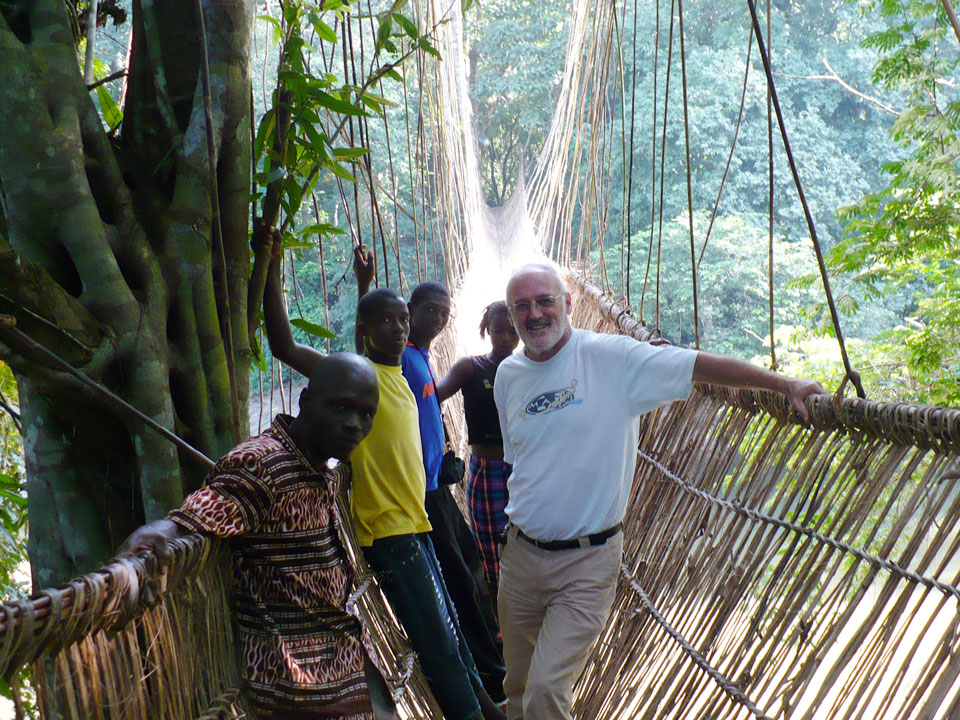God in Everything

Today is a period and a society in which the Church, Christianity, and religion in general, seem to be reaching the end. Our epoch has been defined as a truly ‘cultural night’, a night foreshadowed by the terrible proclamation that God is dead. Completely bucking this general trend, Conforti’s Testament Letter proposes “to see God, seek God, love God in all things.”
At a time when ideologies and nationalisms were on the rise – but even today they keep drawing followers and remain a temptation despite their failures –Conforti proposed a universal project that, once again, bucked the trends: he viewed the possibility of a world forming one single-family embracing all humanity.
Commitment, dedication, and work towards the realization of this sublime objective is, according to the Founder, “the fulfilment of Christ’s wish.” And, as a consequence, it is also what makes of us authentic prophets when, together with him, we chose to undertake the “serious and solemn commitment” contained in the Constitutions.
Obviously, the Letter abounds with many other contents and overflows with the father’s affection for his family which is willing to answer so great a call. I have always loved the idea taken from St Anselm “of offering both the fruit and the plant” which well expresses the relation between apostolate and religious life. [In the Letter] religious life is proposed and explained extensively and in detail. However, it has always struck me that, apart from stressing their observance, at the source of each vow is placed a verb: ‘let us, love.’ Let us love poverty, let us love that virtue which makes us similar to the Angels, let us treasure the sacrifice of our will through the vow of obedience. Although the language being used bears the mark of their time, these paragraphs are very beautiful because they describe how everything is aimed, so to speak, at setting ourselves aside in order to let the life of Christ shine through us, for Christ remains the model and inspiration of our actions. The Founder is really a fine expert of community and apostolic life, so much so that his advice bring spirituality down into everyday life. The oxymoron an “affluent poverty” (povertà opulenta) is very expressive and easy to remember, like the quote from Paul’s letter to Timothy: “As long as we have food and clothing, let us be content with that,” or the advice to be prudent, humble and industrious, for idleness opens the door to deviations. One can inform superiors about his feelings, but must not talk back; splinter groups must not take form and no one should plot to get his own way. No-one should claim privileges and exemptions even after having held important positions. Here, we really must thank the Lord for the many luminous examples of superiors who have followed this advice to the letter. Very beautiful are those passages where one perceives the Founder’s anxiety about the spread of the Gospel and, at the same time, about preserving the unity of mind and intense love for the Family. To realize all of this, Christ’s love must rule mutual relationships. The Founder lists also what opposes it: individuals’ selfishness, criticism, contrariness, ostentation, and desire for the limelight (an easy temptation in mission!); all these attitudes should be sacrificed on the altar for the celebration of life.
Nevertheless, the idea of one single human family is what attracts and inspires me; it opens my horizons and spurs me on with creativity and commitment.
Similarly, I find appealing the other exhortation, “to see God, seek God, love God in all things” just when the death of God is being proclaimed. I would like to say more about this point but I know that my words would spoil that tragic and beautiful image of Jesus that on the cross shouts the silence and the death of God; I would also spoil the image of the centurion who, in the very moment of darkness, recognizes Jesus and utters: “In truth, this man was the son of God.” At this point, only a plea remains: Lord, “make us see”, give us the same blessed eyes of the centurion.
Fr. Carlo di Sopra, sx
September 2021, Fadugu, Sierra Leone, West Africa


